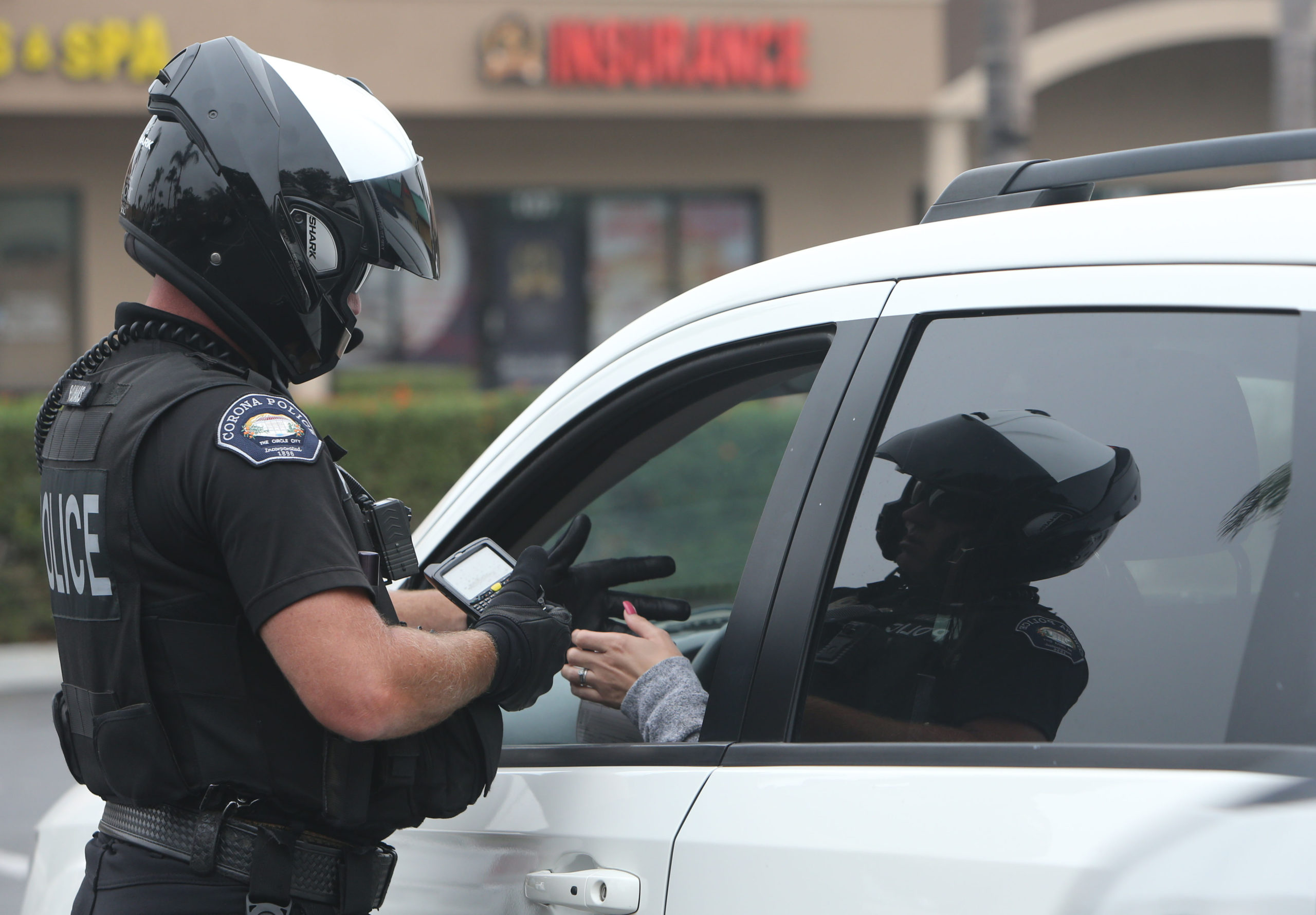Stop Using Police for Traffic Stops
The goal of traffic enforcement is safety. To keep residents safe, cities should shift enforcement to a civilian agency and increase automated enforcement.

The Point
The goal of traffic enforcement is safety. To keep residents safe, cities should shift enforcement to a civilian agency and increase automated enforcement.
There are better ways to promote road safety:
- Cities should transfer traffic enforcement to non-police. Those responsible for making sure traffic rules are followed should be unarmed and separate from criminal law enforcement and investigations. Last year, Berkeley, California passed a proposal to remove traffic enforcement from police duties; Los Angeles; Philadelphia; New York; Cambridge, Massachusetts; and Montgomery County, Maryland have also considered transferring traffic enforcement away from police.
- Cities should also increase their use of “automated enforcement,” like speed detectors and traffic cameras. Not only do these tools reduce contact between drivers and enforcers, they also reduce racial disparities in enforcement.
- Polling shows that this approach to traffic enforcement is popular with a majority of likely voters. But cities should still be ready for pushback. They can respond with public education campaigns and specialized training for those tasked with traffic enforcement. Public education can also help counter the false narrative that traffic enforcement is “dangerous” and “high risk.”
Police enforcement of traffic rules does more harm than good:
- Policing turns routine traffic stops into deadly encounters. An NPR investigation into deaths of 135 unarmed Black people shot by police since 2015 found that “more than a quarter of the killings occurred during traffic stops.” New York Attorney General Leticia James recommended removing the New York Police Department from everyday traffic enforcement, pointing out that “the vast majority of traffic stops…do not involve criminal conduct, yet often end in violence.”
- Racial disparities abound in traffic stops. Data consistently shows Black drivers are stopped and searched more often than white drivers, despite searches of white drivers more often turning up evidence of crimes.
- Police spend a lot of time enforcing traffic rules. Non-police traffic enforcement would free up police resources, giving departments more officers and time to focus on solving homicides and other violent crimes.
Dive Deeper
- What Traffic Enforcement Without Police Could Look Like. Because traffic stops all too often escalate into deadly incidents, calls have grown to disentangle traffic enforcement from police—and a measure to do so has already passed in Berkeley, California.
- A Path to Non-Police Enforcement of Civil Traffic Violations. To reduce police violence and abuses of power, officers’ contacts with the public can be limited by transferring some policing functions to non-police agencies that can better promote individual and societal well-being.
- Do Traffic Stops Need Armed Cops? Berkeley Councilmember Rigel Robinson, Cambridge Councilmember Quinton Zondervan and Columbia Professor Sarah Seo discuss whether heavily-armed police are the right people to enforce traffic laws—and potential ways to make traffic enforcement safer for everyone.

